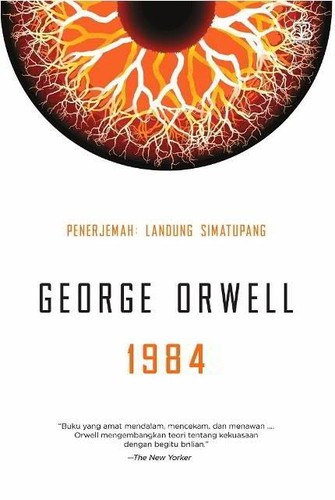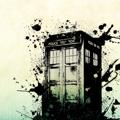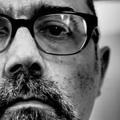Distopía escrita por George Orwell en los años cuarenta del siglo XX, 1984 ha marcado nuestra concepción, nuestra comprensión de lo que es un totalitarismo. Y no solo el soviético estalinista al que alude de manera más obvia con ese Gran Hermano con bigote cuya mirada en los carteles parece seguirte, sino también a otros totalitarismos más sutiles, vigentes, que afectan íntimamente nuestra esfera privada.
Para quien piense que es una exageración que nuestra sociedad también esté, al menos en parte, retratada en esa novela, le traigo una anécdota de lo más ilustrativa: hace unos años Amazon, por problemas con la editorial de varios de los libros de Orwell, eliminó de todos los dispositivos Kindle, a distancia, precisamente 1984 y Rebelión en la Granja. Y lo hizo sin necesidad de entrar casa por casa, sin necesidad de quemar papel. Fue cuestión de que un tipo en un edificio lejano apretara un botón. Uno de los pilares del universo de la novela, uno de los fundamentos de la ideología Ingsoc, es la “mutabilidad del pasado”, la capacidad del sistema para borrar todos los registros de los hechos y falsificarlos para que todo sea acorde al presente que le conviene al régimen. Desde esta perspectiva, ¿no nos debería inquietar que cada vez confiemos más en buscadores como Google para consultar cualquier duda de los hechos que queramos conocer, hasta tal punto que la pérdida de memoria es generalizada? Y pronto no solo será ir a una web para mirar cómo acabó tal o cual hecho histórico. Cuando seamos viejos el relato de quienes fuimos lo contarán los registros que dejamos en las redes. Registros que, en realidad, no nos pertenecen a nosotros sino a las grandes empresas que a fin de cuentas nos gobiernan. Entraremos en Facebook para rememorar nuestro propio pasado, y Facebook nos “ayudará” a reinterpretarlo.
Y luego está otro aspecto todavía más sutil, muy bien tratado en la novela. Narra el proceso mediante el que la represión doblega la voluntad de una persona, llegando a entrar en la esfera íntima de su mente, allí donde al comienzo de la novela el protagonista pensaba que era intrínsecamente libre e invulnerable.
Y por el camino explica procesos psicológicos que cualquiera puede observar en dinámicas enfermizas de nuestro día a día, como el doblepensar. Y lo hace con buena literatura, con mucho mayor alcance que si Orwell hubiera escrito un erudito ensayo de diez mil páginas. En el libro dice, por ejemplo:
“… la facultad de creer que lo negro es blanco, más aún, de saber que lo negro es blanco y olvidar que alguna vez se creyó lo contrario.”
“Decir mentiras a la vez que se cree sinceramente en ellas, olvidar todo hecho que no convenga recordar, y luego, cuando vuelva a ser necesario, sacarlo del olvido solo por el tiempo que convenga, negar la existencia de la realidad objetiva sin dejar ni por un momento de saber que existe esa realidad que se niega…”
Me atrevería a afirmar que 1984 influyó toda la crítica a nuestra cultura de la segunda mitad del siglo XX. Desde la psicología a la filosofía o la sociología. Menciona el panóptico, el modelo planteado por Foucault treinta años después, con una elegancia y una sencillez aterradora.
Y que conste que no es un clásico solo por su contenido “social”. Es una obra bellamente escrita, con momentos llenos de significado, poesía y humanidad. Una novela muy bien planteada de principio a fin, lectura necesaria a la que se debe volver con la madurez, cuando uno está en situación de entender mejor el alcance de la Policía del Pensamiento, su poder, y su verdadera intención.




